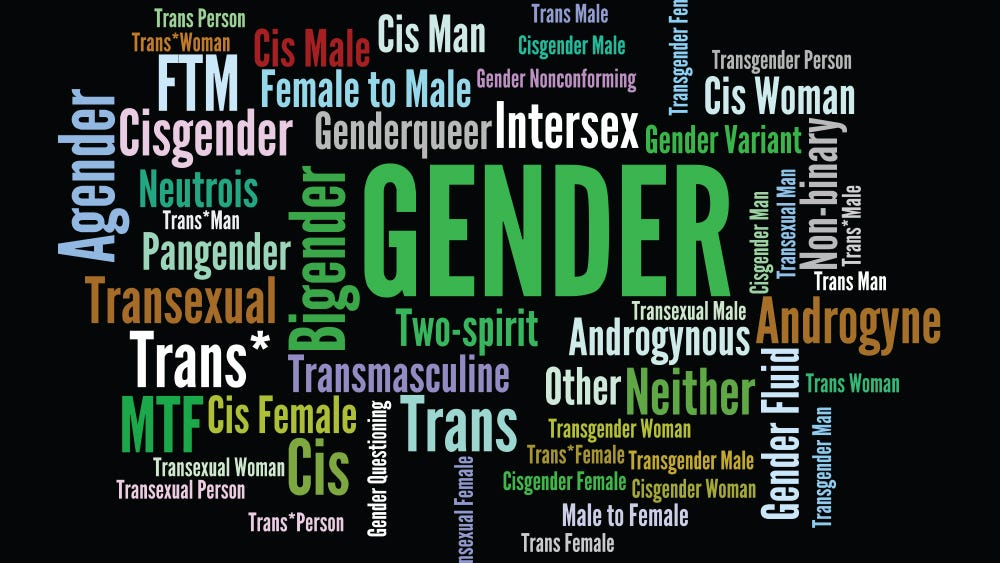American College of Pediatrics DEBUNKS claims that “affirmation” helps the mental health of children with gender dysphoria.
The majority of children with gender dysphoria naturally outgrow it in adolescence.
By Laura Harris
February 21, 2024
A recent American College of Pediatrics (ACPeds) review has countered the claims of left-wing advocates that providing transgender-identifying children with "affirming" treatment like hormones and surgical interventions effectively addresses the mental health issues of children with gender dysphoria.
The ACPeds review, conducted based on the available scholarly literature, claims that there is no conclusive evidence supporting the benefits of transgender hormones and surgical interventions.
Instead, it suggests that "both before and after 'gender-affirming therapy' (GAT), adolescents who have gender-identity incongruence are at higher risk for psychopathology than their peers who identify with their biological sex."
"There are no long-term studies demonstrating benefits nor studies evaluating risks associated with the medical and surgical interventions provided to these adolescents. There is no long-term evidence that mental health concerns are decreased or alleviated after 'gender-affirming therapy,'" the abstract read.
The ACPeds review also cited other studies with similar findings.
For instance, the Adolescent Brain Cognitive Development study, involving over 11,000 children, found that gender-confused children are more likely to experience depression, anxiety, behavioral problems, and suicidality.
Another study on 3,754 trans-identified adolescents in U.S. military families over 8.5 years showed similar results: the use of cross-sex hormones was linked to increased mental health services usage, psychiatric medications, and suicidal thoughts.
Similarly, an analysis conducted by McMaster University in Ontario's Department of Health Research Methods, Evidence and Impact, which examined 14 systematic reviews out of 61 initially identified, found no evidence comparing the outcomes of using and not using puberty blockers.
Thus, the researchers conclude: "It is unknown whether people with gender dysphoria who use puberty blockers experience more improvement in gender dysphoria, depression, anxiety, and quality of life than those with gender dysphoria who do not use them."
These studies oppose the popular belief that gender-affirming care mentally helps children suffering from gender dysphoria.
"There is no long-term evidence that current ‘gender affirming’ medication and surgical protocols benefit their mental well-being. High rates of suicide attempts and/or completions in those who have received ‘gender-affirming’ interventions indicate that at minimum, long-term controlled trials should be conducted if these interventions are to be continued," the ACPeds concluded.
The majority of children with gender dysphoria naturally outgrow it in adolescence.
According to the Centers for Disease Control and Prevention's Youth Risk Behavior Surveillance System's biennial survey on youth health, an increasing number of American youth are identifying as gay, bisexual or otherwise questioning of their gender and sexuality.
However, multiple other studies show that between 80 percent to 95 percent of children with gender dysphoria naturally outgrow it later in adolescence.
"Experts on both sides of the pubertal suppression debate agree that within this context, 80 percent to 95 percent of children with [gender dysphoria] accepted their biological sex by late adolescence," said Director Stephen Rosenthal of The Child and Adolescent Gender Center Clinic at UCSF Benioff Children’s Hospital San Francisco.
Even full "reassignment" surgery often does not effectively address the increased risk of self-harm and suicide in gender-confused individuals.
In fact, it might make things worse by reinforcing their confusion and overlooking the actual root causes of their mental struggles.
As a response, ACPeds condemns the rush to treat gender-dysphoric children without considering other potential sources of mental or emotional distress, such as autism spectrum disorder, trauma from sexual abuse, or familial and social rejection.
Furthermore, in a National Institute of Health study on transgender kids, the ACPeds cited the potential harmful effects of cross-sex hormone administration after puberty suppression.
The ACPeds lists risks such as thrombosis, cardiovascular disease, weight gain, hypertriglyceridemia, and infertility. The ACP argues that relying on research from adults may not accurately reflect the risks for dysphoric adolescents who are likely to receive these treatments for a longer time.
GenderConfused.com has more stories about the promotion of transgenderism among kids.
READ MORE:
The Hijacking of Pediatric Medicine
Watch this interview series featuring Jennifer Bilek as she talks about who is behind the trans agenda.




